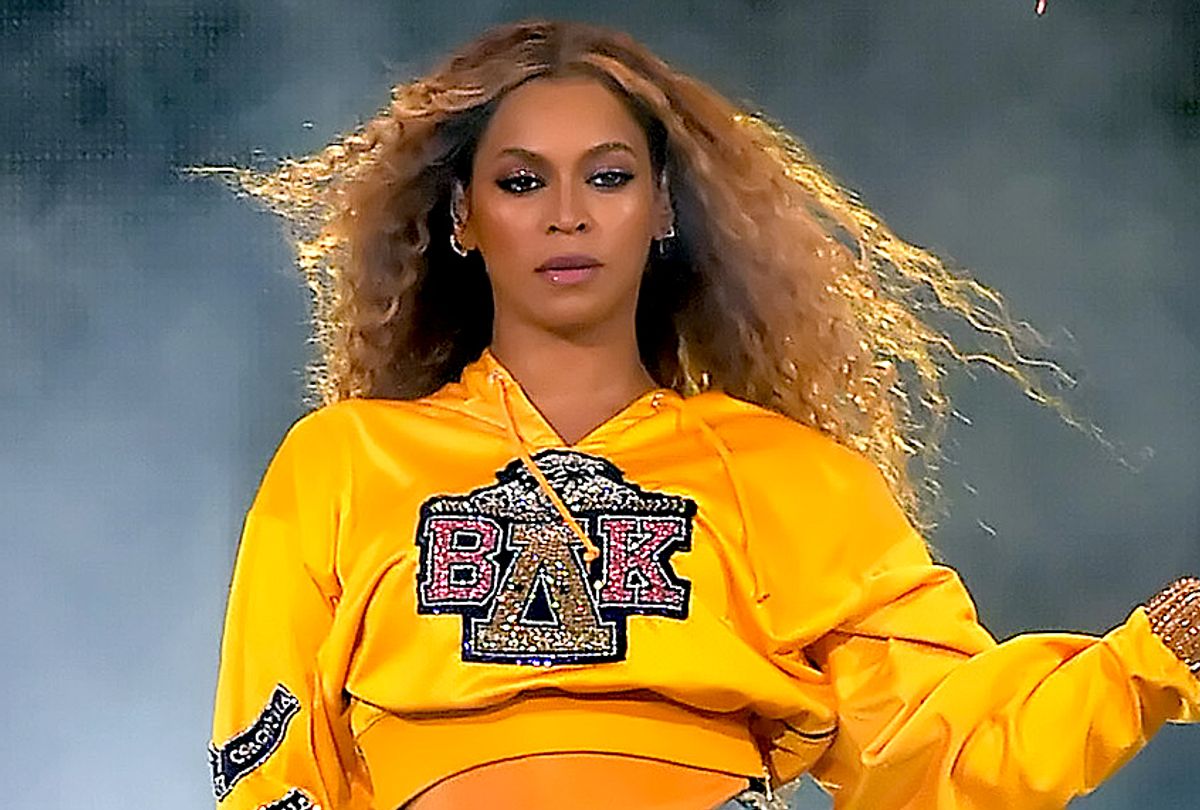In a move that shocked and excited her fans, Beyoncé will take over the cover of Vogue for the magazine's upcoming September issue — the most important issue of the entire year —according to a report by HuffPost. And most significantly, the entertainer has reportedly hired Tyler Mitchell, 23, to shoot the cover, tapping the first black photographer to do so in the publication's 126-year history.
HuffPost's Yashar Ali describes the decision as "unprecedented," as Vogue's Editor-In-Chief Anna Wintour completely relinquished the cover's reigns to Beyoncé. "The publication is contractually obligated to give Beyoncé full control over the cover, the photos of her inside the magazine and the captions, which she has written herself and are in long-form, according to two sources who are familiar with the agreement between Vogue and Beyoncé but aren’t authorized to speak to the press," he wrote.
The cover is normally under Wintour's control, and she is known for meticulously managing it, choosing the outfits worn and the final cover image, with little to no input from the cover's star. A source familiar with Vogue's editorial process told Ali that Wintour usually prefers hiring photographers with "traditional experience" and likely wouldn't have selected Mitchell, who graduated from New York University last year. But with Beyoncé at the fore, Wintour's gatekeeper status was upended, at least for one issue, as was the magazine's apparent history of not selecting black photographers to shoot the coveted cover.
"The reason a 23-year-old black photographer is photographing Beyoncé for the cover of Vogue is because Beyoncé used her power and influence to get him that assignment," the source added.
However, Mitchell, while young, has already made an indelible mark on the art, fashion and entertainment world. He self-published a book of photos documenting Cuban skate culture and architecture. He's shot for magazines like Teen Vogue, The Fader and Office, starred and directed a short film for American Eagle, and has worked with high-fashion brands like Givenchy and Marc Jacobs. Mitchell has also shot several prominent entertainers, among them Beyoncé's sister Solange.
Of Mitchell's overall vision: "I depict black people and people of color in a really real and pure way," he told The New York Times in December. "There is an honest gaze to my photos."
When the news went live of Beyoncé's decision to employ Mitchell, Beyoncé fans erupted in celebration, especially at the way Beyoncé used her influence to open up space in a historically elitist and exclusive industry.
Actress Tessa Thompson wrote on Twitter, "The news of Beyoncé literally changing the face of a publication like Vogue has me really celebrating the ones who use their power and influence to uplift others and make spaces more inclusive. I’ve witnessed *so many* have that ability and not— or actively do opposite."
It's a path Beyoncé continues to forge herself. This year, she was the first black woman to headline Coachella, the popular annual music festival in California. Her performance was filled with references, anecdotes and homages to black culture and black college culture, complete with drum lines, HBCU-like bands, mock probates and step shows.
READ MORE: “Sorry to Bother You” speaks the hidden truths of “white voice” out loud
But amid the jubilee over Beyoncé breaking barriers, the news also illuminated Vogue's limited hiring practices. In 126 years of curating the fashion bible, they never once hired a black photographer to shoot the cover. If Beyoncé hadn't stepped in and done so herself, would they have anytime soon?
"It's amazing, and embarrassing for them, that Vogue has never before had a Black photographer work on their cover," writer Touré posted on Twitter. "And Beyonce changed that, not Vogue."
"If we look at the situation, yes, if it’s true, it’s a moment to be celebrated – but it’s also sad," David Uzochukwu, a 19-year old photographer, wrote in The Guardian. "It is not US Vogue that chose him. It is Beyoncé. A powerhouse of the music industry. She’s the one who pulled him in, one of the most famous women in the world. And that’s telling."
He added that while featuring diverse models in front of the camera has been somewhat of a trend of late, "almost all of the time, there is a white person behind the lens."
Tuesday night, "The Daily Show" host Trevor Noah discussed the news on his show. "What's funny about this story is that by having the first black photographer shoot their cover, they've inadvertently exposed that they've never had a black photographer shoot their cover," he said. Without Beyoncé, would we have ever known, Noah wondered, that in 126 years, Vogue never corrected this or made hiring a black photographer a priority?
Journalist Jill Filipovic wrote for CNN, "Beyoncé, we know, is not a woman who tolerates mediocrity, least of all with her own image. It took someone who sees the world from a different vantage point than, say, Anna Wintour to get an eminently qualified and gifted artist like Mitchell behind the cover."
The hope is that Beyoncé's appointment of the first black photographer to shoot the cover of Vogue will ripple throughout fashion media and that brands and magazines alike will cultivate more diverse rosters. (It's highly unlikely that Vogue is alone here.)
But will pop cultural giants like Beyoncé have to move every institution forward themselves? Who in institutional positions of power within the fashion world is making diversity in front of and behind the camera a priority? As Filipovic said, "It shouldn't require a superstar like Beyoncé to flex her star power to break this longstanding barrier. But we should all be glad she did."



Shares